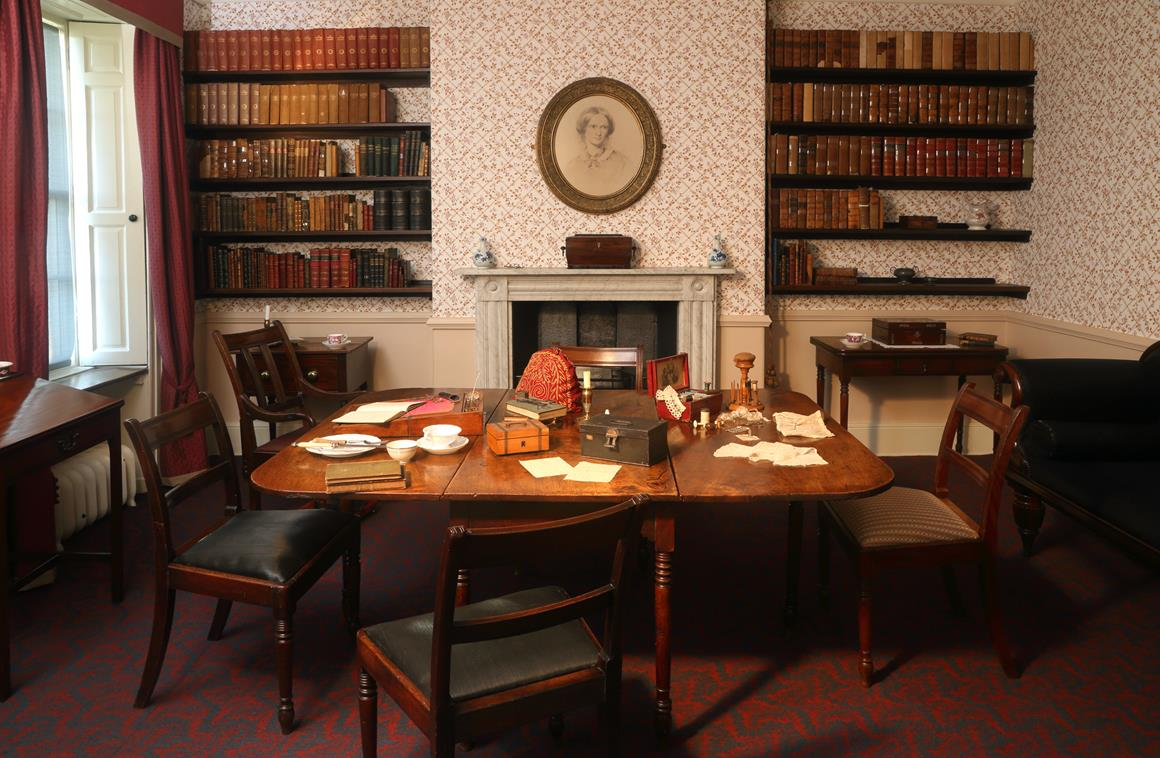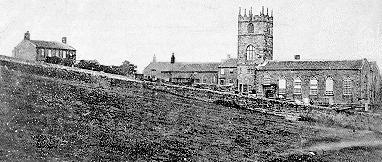On this day in 1890 Mme Heger died in Brussels.
In 1842, Charlotte and Emily attended a boarding school the Pensionnat Heger, run by Claire Zoé Parent Heger (1814-1891) and Constantin Heger (1809-1896), in Brussels.
The name of "Monsieur Heger" (Constantin Georges Romain Heger - Brussels, 1809-1896) comes up frequently in Brontë criticism, and it is by reading these biographies that we can create a portrait of him. Elizabeth Gaskell, in the Life, is giving a first characterization, after she went to Brussels to meet him. Another important work is ‘The Secret of Charlotte Brontë’ by Frederika MacDonald; she herself was a student at the Pensionnat Heger and knew from first-hand experience what M. Heger was like. She gives her own personal reminiscences of the real M. Heger in this biography, making it an invaluable source.
The Heger family, originally from the Palatinate in Germany, had been established in Belgium for three generations. It appears that his father once owned a jewellery shop at 78 Rue Royale, but was declared bankrupt in the 1815 after a friend failed to repay a loan. By 1825, the young Constantin had to move to Paris in search of employment. He worked as secretary to a solicitor, but was unable to pursue a career in law, due to lack of funds.
Heger was back in Brussels in 1829, where he became a teacher of French and mathematics at the Athénée Royale, in the Rue de Namur. The impressive neo-classical style building is still standing, close to Place Royale. In 1830 he married his first wife, Marie-Josephine Noyer. Revolution broke out in the streets of Brussels that same year. It is not known whether he was in the audience that stormed out of the Monnaie Theatre after the performance of a patriotic Italian opera, but he was definitely involved in the fighting that led finally to the creation of the Belgian state. From 23-27 September he fought at the barricades as a nationalist but his wife’s young brother was killed at his side. According to one legend, he sniped at Dutch troops from the rooftop of the future Pensionnat Heger. In September 1833, Constantin’s wife and child both died during a cholera epidemic.
Heger’s career took a step forward when he was appointed to teach languages, mathematics, geography and Belgian history at the veterinary college in the Rue Terarken. He continued to teach at the Athénée when it moved in 1839 to the Rue des Douze Apôtres, just north of the Pensionnat.
Heger met Mlle Claire Zoë Parent, the directress of the neighbouring girls’ boarding school, and began teaching at her school in the Rue Isabelle. They married in 1836 and had six children. He was paid the same salary as the other teachers at the school and even forced to sign for his salary in her ledger. Those who knew Heger were impressed by his powers as a public speaker. In 1834, at the age of twenty-five, he gave a speech at the Athénée prize ceremony giving in the town hall on Grand’Place. ‘It was remarkable,’ a newspaper wrote the following day, ‘for the originality of its ideas, for its correct appraisal of the duties of a teacher and a father, and for its wise and judicious views on education in general and the education of young people in particular.’ Charlotte certainly attended the same ceremony on 15 August 1843 to hear Heger deliver an address on emulation. She owned copies of both that speech and the one from 1834, when Charlotte later returned to Haworth.
Heger had a natural gift for teaching, and particularly liked to work with younger children; he was especially admired by them because of his open, unasuming approach. He was very intelligent, kind, wise, generous and religious. A devout member of the Society of St. Vincent de Paul, he helped the sick and needy, and gave evening lectures for the less well-off. He allowed Charlotte and Emily, daughters of a Protestant clergyman of only moderate means, to have extra special favours, lessons and terms.
Frederika MacDonald writes: ..."
In brief, what M. Heger’s face revealed when studied as the index of his natural qualities, was intellectual superiority, an imperious temper, a good deal of impatience against stupidity, and very little patience with his fellow-creatures generally; it revealed too a good deal of humour; and a very little kind-heartedness, to be weighed against any amount of irritability.” … "The funny and pleasant thing about M. Heger was that he was so fond of teaching, and so truly in his element when he began it, that his temper became sweet at once ; and I loved his face when it got the look upon it that came in lesson-hours : so that, whereas we were hating each other when we crossed the threshold of the door, we liked each other very much when we sat down to the table ; and I had an excited feeling that he was going to make me understand. It took him rather less than a quarter of an hour. "
Charlotte's portrayal of the temperamental M. Heger as she first saw him in 1842 again describes a striking man: "He is professor of rhetoric, a man of power as to mind, but very choleric and irritable in temperament; a little black being, with a face that varies in expression. Sometimes he borrows the lineaments of an insane tom-cat, sometimes those of a delirious hyena; occasionally, but very seldom, he discards these perilous attractions and assumes an air nor above 100 degrees removed form mild and gentlemanlike…”
Constantin Heger observed the two English sisters and realized their exceptional talents. His remarkable system of education and his stimulation worked as a catalyst for Charlotte’s and Emily’s inspiration for writing. He was the first to recognize the genius of these women and he is therefore worthy of our recognition. After the Brontës’ stay at the Pensionnat, M. Heger became principal of the Athénée in 1853, but resigned again after two years because he could not accept the utilitarian methods advocated by the General Inspectors of the school. At his own request he resumed the teaching of the youngest class in the school. He continued to give lessons in his wife’s pensionnat until he retired in about 1882.

Constantin Heger died in 1896. His obituary in l’Indépendence Belge of 9 May praised his passionate belief in the importance of education and the dynamism and authority of his teaching. He is buried with his wife along with their daughter Marie, who died in 1886, in Watermael-Boitsfort municipal cemetery, on the edge of the Forêt de Soignes.





